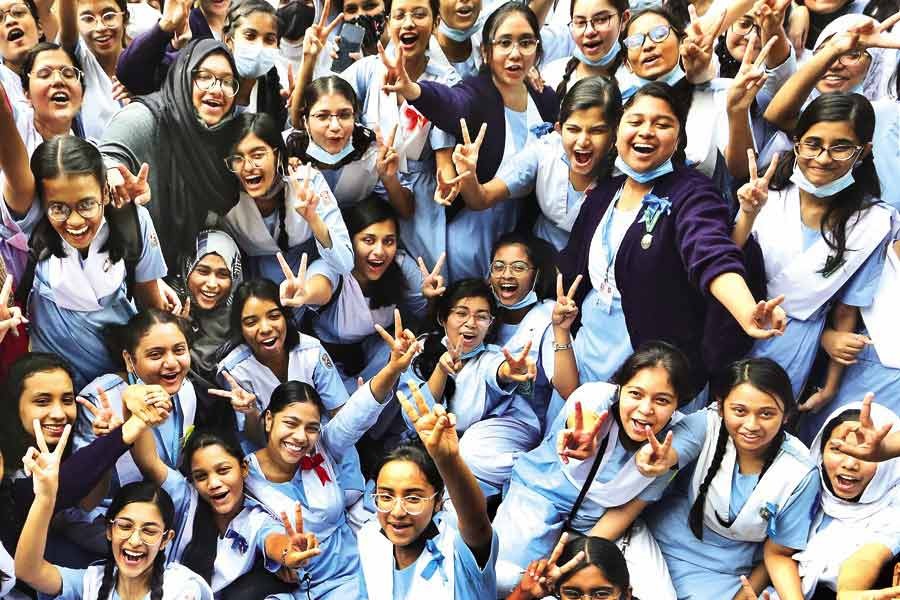The results of the 2021 secondary school certificate (SSC) and equivalent examinations, published on Thursday last, are unprecedented. Over 93 per cent of the students who sat at the examinations have come out successful. The success rate is mind-blowing, but not that surprising, given the circumstances in which the examinations were held. The students sat for only three elective subjects, that too, with a short syllabus. The outcome of the latest examinations, however, is better than the previous year's when no public examinations could be held.
Students of all levels remained confined to their houses during most of 2020 and 2021. Only the lucky ones remained connected with their educational institutions online. Students had become apprehensive of their future as the pandemic did not show any sign of abating. Their guardians were also worried. Their worry is still not over, it seems. The world is again in the grip of what the World Health Organisation has termed as the Covid tsunami.
Most parts of Europe and North America are witnessing a record resurgence of infections, with Delta and Omicron variants together triggering havoc. Both infections and fatalities recorded a rise during the past few weeks. Prime Minister Sheikh Hasina on Thursday last said the educational institutions that were opened recently after more than one and a half years' closure might have to be closed again if the Covid situation deteriorated. None would expect that to happen, but worries are there.
The effect of the disruption caused to normal educational activities by the pandemic will be a long-lasting one. The absence from classes, auto-promotion and revised examinations are depriving the students of normal education and gathering of knowledge. That they would be deficient in many subjects, thus, remains undisputed. Questions are very often raised about the quality of education in the country. The pandemic-related disruptions are making the situation even worse. The impact of the ongoing unsavoury developments would be felt when these knowledge-deficient students would later enter various spheres of national life.
Under the circumstances, the resumption of normal educational activities at all levels during the year 2022 will be an important task for all concerned. Holding one or two classes in primary and secondary classes will not do. The government has brought students of certain age groups under vaccination coverage. But the vaccination of students has remained confined to some urban centres because of technical reasons. Life has returned to normal with Covid infection rate hovering between 1.0 and 3.0 per cent for the past few weeks. The emergence of a highly transmissible Omicron variant has stirred up worries, but any major restrictions are unlikely to be imposed soon.
The government may start thinking loudly over the issue of resuming normal educational activities for the greater good of the students. Kids are now seen playing in the open with no protective gear. Authorities, however, might like to watch infection and fatality rates for some more time before making a decision. The reason is understandable. The pandemic situation hopefully will improve in the middle part of this year, as predicted by the World Health Organisation (WHO).


